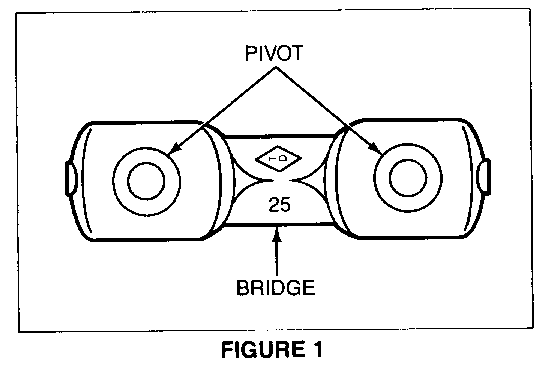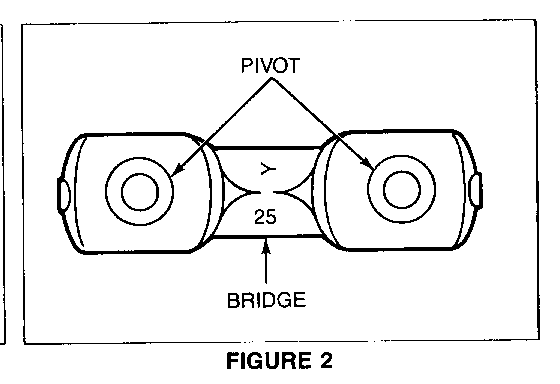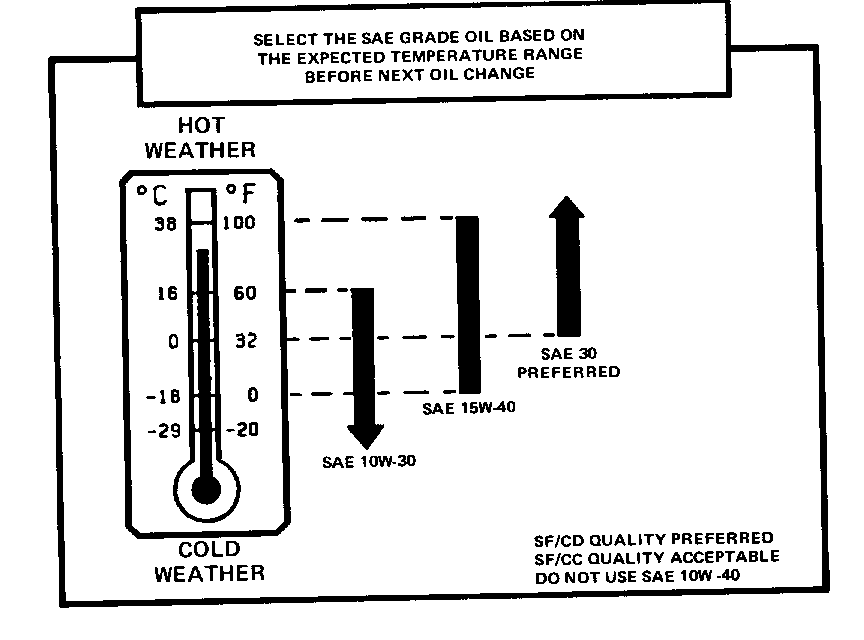5.7 LITER DIESEL ENGINE UPDATE MULTIPLE SUBJECTS

5.7 LITER DIESEL ENGINE UPDATE
1. AIR CLEANER LID
A new design air cleaner lid, which has been reinforced in the area of the center mounting bolt holes, has been released to service 1981 Federal and 1982 National DeVilles and Broughams equipped with 5.7L V-8 diesel engines. Formerly, the air cleaner lid for these engines was available only as part of the entire air cleaner assembly. This new design air cleaner lid and two longer mounting studs, required to properly assemble the lid, are available in a kit (P/N 25042875) through GMWDD and should be used whenever lid replacement is required.
2. VALVE TRAIN TICKING NOISE AND/OR BACKFIRING
Some 1978-1983 5.7 liter diesel engines may experience a valve train ticking noise and/or a backfiring condition. This condition may be caused by premature rocker arm pivot wear. Original rocker arm pivots were sourced from two vendors. The vendor identification for both vendors can be found on the underside of the rocker arm pivot bridge (refer to Figures 1 and 2 below).
The pivot assemblies that are exhibiting premature wear are those illustrated in Figure 2. It is recommended that ONLY the pivots illustrated in Figure 1 be used when servicing an engine for the above mentioned condition.
3. DIESEL HEAD GASKET
The diesel gaskets listed below will supersede previous gaskets for servicing 5.7 liter diesel engines. These head gaskets are the same gaskets currently recommended for use with .030" oversize pistons and will now be used for all applications. The use of these gaskets on standard engines should prevent the possibility of loss of compression due to the gasket sealing ring "falling" into the combustion chamber. This supersession will also affect appropriate gasket kits.
COLOR OF SEAL PART NUMBER MODEL YEAR DIAMETER THICKNESS ------------- ----------- ----------- -------- --------- Grey 22519416 1978, 1979, 1980 & 1983 .030 O.S. +.005 Purple 22510719 1981 & 1982 .030 O.S. Std.
4. LEAKING CYLINDER HEAD GASKET - DIESEL ENGINES
Serviceman Bulletin 81-63, Group 6A, states on page 1, under Cylinder Heads, that prechambers must not be recessed into the cylinder head or protrude out of the cylinder head by more than .004" or a head gasket leak may result. This measurement should be made at two or more points on the prechamber where the prechamber seats on the head gasket heat shield and sealing ring. Using a straight edge and a thickness gage or dial indicator, measure the difference between the flat of the prechamber and the flat surface of the cylinder head. A slight variance from one side of the prechamber to the other provided both sides are within the tolerance will result in a good seal.
If the prechamber is recessed more than .004", replace the prechamber or the head after determining which is at fault by inserting and measuring a known good prechamber.
If the prechamber is protruding out of specification, carefully grind or file the top of the prechamber for a flush fit or replace the prechamber.
Parts Information
5.7L Diesel .010 Over- Prechamber P/N Standard Size O.D.* -------------- -------- ---------- 82-83 22515655 22517846 80-81 22505979 - 78-79 558677 -
*Identified by .010 marking stamped on the flat surface of the prechamber facing the piston.
5. 1978-1983 5.7L DIESEL ENGINE OIL RECOMMENDATIONS
The best lubricating oil you can use in Cadillacs equipped with 5.7L diesel engines is SAE 30 SF/CD; however, SAE 30 SF/CC quality is acceptable. These oils combine excellent film strength with the best available additive package to prevent wear and protect against piston ring sticking at higher mileages. DO NOT USE SAE 10W-40 oils in the 5.7L diesel engines because most of them can cause piston ring sticking and engine damage.
SAE 30 SF/CD and SF/CC oils are generally not suitable when temperatures fall below 32 DEG F because of cold starting considerations. The use of SAE 15W-40 SF/CD or SF/CC at these lower temperatures (and in extremely cold areas SAE 10W-30 SF/CD or SF/CC) may be necessary. Study the following chart carefully and follow its recommendations. As always, NEVER exceed the recommended oil change intervals since oil quality can deteriorate rapidly with mileage, as carbon accumulates in the oil.



General Motors bulletins are intended for use by professional technicians, not a "do-it-yourselfer". They are written to inform those technicians of conditions that may occur on some vehicles, or to provide information that could assist in the proper service of a vehicle. Properly trained technicians have the equipment, tools, safety instructions and know-how to do a job properly and safely. If a condition is described, do not assume that the bulletin applies to your vehicle, or that your vehicle will have that condition. See a General Motors dealer servicing your brand of General Motors vehicle for information on whether your vehicle may benefit from the information.
